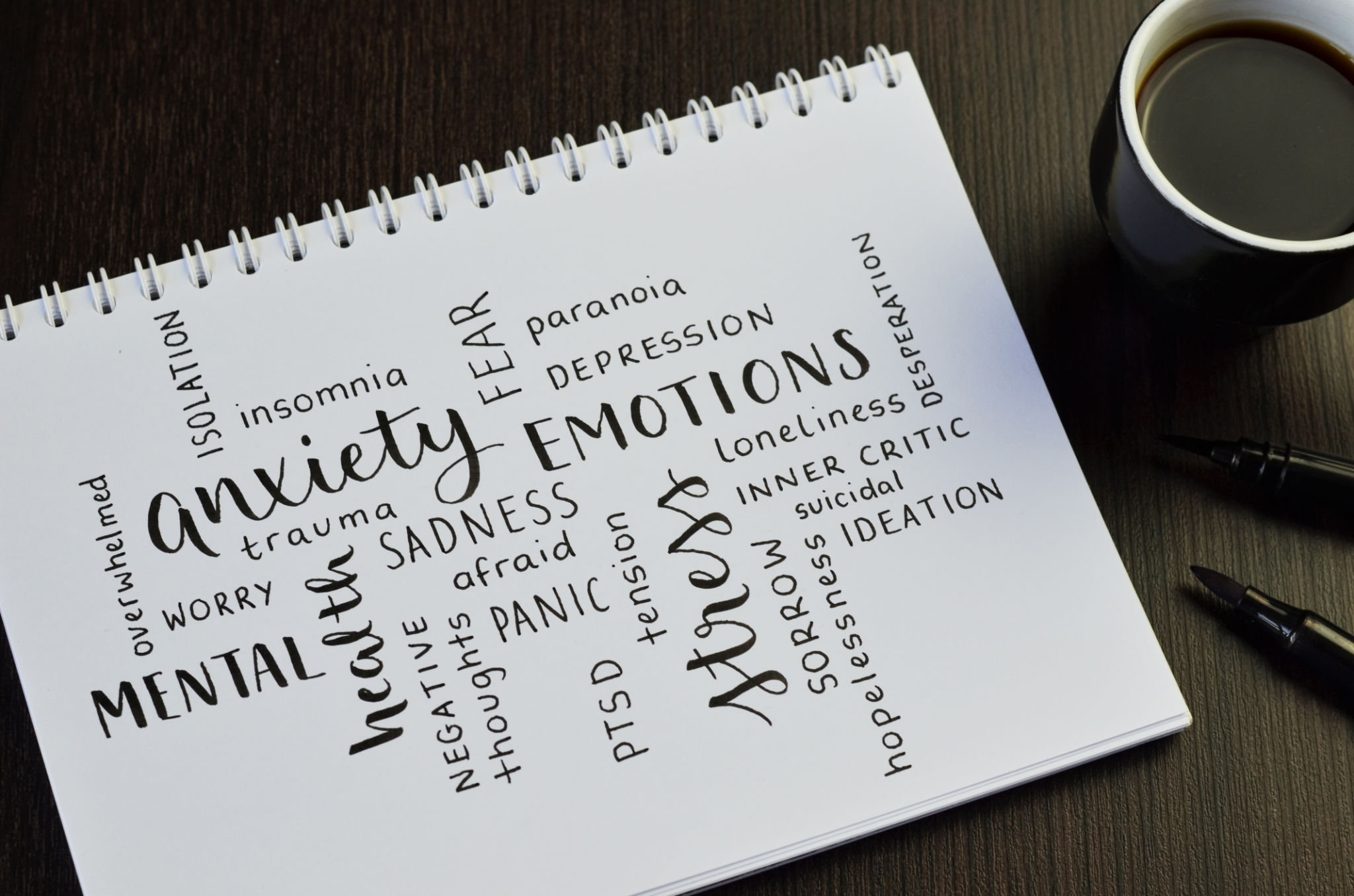Seize The Awkward Conversation
We all have those moments when life feels somewhat overwhelming, but when they happen more frequently and become more intense, they can be a sign that someone is struggling with their mental health. Maybe you've noticed a friend acting differently lately—perhaps they seem more irritable, withdrawn, or just not themselves.

It’s easy to brush it off, thinking they’re just having a bad day. But what if it’s more than that? What if they need someone to reach out, but they don’t know how to ask?
Recognizing the Signs

It can be rather tough to tell if someone is dealing with a mental health issue, especially when the signs aren’t always obvious. Think about your friend who always shows up with a smile but lately has been canceling plans, or the co-worker who’s usually the life of the office but now seems distant and disconnected. These little changes in behavior can sometimes be red flags that something more serious is going on.

Here are some signs to look out for:
- Irritability or impulsiveness: They seem more short-tempered or reckless than usual.

- Changes in daily habits: Maybe they’re dressing differently, not eating as much, not showering or bathing regularly, or having trouble sleeping.
- Expressions of loneliness or despair: They might mention feeling down or isolated more often.
- Difficulty concentrating: They’re struggling to focus on tasks they used to handle with ease.

- Substance misuse: They might be turning to alcohol or drugs to cope with their feelings.
- Suddenly happy again: If a friend or someone you know has been sad and withdrawn for awhile and suddenly they seem happy, this can be a serious warning sign.

Often, the decision to make a plan of suicide results in the person finding “relief” in knowing the pain won't be for long anymore.
These behaviors might feel awkward for some people to address, but avoiding conversation can leave many people feeling more isolated. The truth is, they might be waiting for someone to notice—someone like YOU!

Starting the Conversation
Let’s say you’re sitting across from your friend at your favorite coffee spot. You’ve noticed they’ve been off lately, but you don’t want to overstep or disrespect their boundaries. The silence between you grows, and you feel the weight of what you need to say.

“Hey, I’ve noticed you haven’t been yourself lately. What’s going on? I would love to listen if you want to talk about something.”
It can be that simple. Sometimes, just letting someone know you care enough to ask can make all the difference. Here are a few ways to start the conversation:

1. “It seems like something’s up. Do you want to talk about it?”
2. “Whenever you’re ready to talk, I’m here to listen.”
3. “I’ve noticed you’ve been down lately. What’s on your mind?”
4. “We haven’t caught up in a while. How are you really doing?”
5. “You seem a bit off lately. Want to chat about what’s going on?”
It is important to keep it casual—think of it as a chat, not a therapy session. Let them take the lead and avoid any urge to try and fix their problems for them. Because you can't. Just being there, showing that you care, can be enough to help them open up and share with you.
Navigating the Conversation

When your friend does start to open up, it’s important to listen—and I mean really listen. Let them share what they’re going through without jumping in with advice or trying to solve their problems. It might be uncomfortable to hear, sometimes even frightening, but they need to feel heard, not judged.

Remember :
- Keep it light: This isn’t the time for a deep dive into their behavior. Just listen and show that you care.
- Be patient: They might not be ready to share everything, and that’s okay. Don’t push them to say more than they’re comfortable with.
- Avoid offering solutions: Sometimes, the best support you can offer is simply being there. They don’t need a fixer—they need a friend.
- Normalize their feelings: Let them know it’s okay to feel the way they do. Sometimes, just hearing “It’s okay to feel like this” can be incredibly reassuring.

If someone mentions anything that concerns you, like thoughts of self-harm or suicide, it’s vital to take it seriously. Asking about suicide won’t plant the idea in their head (I promise you it won't!)—instead, it shows that you care enough to ask. If they are in immediate danger, encourage them to seek professional help or call a hotline together. If they refuse and you truly feel concerned, you need to make the call even if they get angry with you!
After the Conversation
After you’ve had the conversation, don’t just leave it at that. Check in with them, even if they didn’t open up much the first time. Let them know you’re still there, ready to listen when they’re ready to talk.
Here’s how you can stay supportive:

1. Stay connected: Keep inviting them to hang out or chat, even if they don’t always say yes. Social connections are crucial for mental health. Don't feel insulted if they back out or say no.
2. Respect their trust: If they’ve shared something with you, treat it with care. Don’t share it with others without their permission. The exception is if they mention self harm or harm to others.
3. Offer help when needed: Sometimes, they might not know where to turn. Help them find resources, like a local therapist or support group, if they’re open to it.
4. Be there for the long haul: Recovery and mental health journeys aren’t one size fits all and no two journeys are the same. There will be ups and downs, and knowing they have someone to rely on can make all the difference.
Resources and Support
If you’re in Montcalm County, there are several resources available to help:
- Montcalm Care Network: (989) 831-7520
- Alternative Counseling Center: (989) 831-9111
- Catholic Charities West Michigan: (616) 356-5923
- North Kent Guidance Services: (616) 527-3351
- Transitions Counseling Services: (616) 754-9420
- Community Hope Christian Counseling: (616) 255-8220

Nationally, you can always reach out to the Crisis and Suicide Line at 988 or text "HELLO" to the TrevorLifeline at 1-866-488-7386. For those in the trans community, the Trans Lifeline is available at 1-877-565-8860.
Conclusion
Talking about mental health can feel awkward, but it doesn’t have to be. By recognizing the signs, starting a conversation, and being a supportive friend, you can make a real difference in someone’s life. Don’t shy away from the uncomfortable moments—seize them. Your willingness to step up could be exactly what your friend needs to start the path to healing and better mental health. Let's take the stigma out of mental health issues. Let's start talking about it!

Be well friends!
Robert

